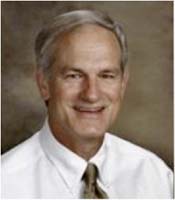By Elizabeth Scalia
Here we have the presentment of two job losses:
 Shirley Sherrod gives a speech; within the speech she indulges in a bit of roundaboutation, saying some things that seemed offensive, until the larger context was understood.
Shirley Sherrod gives a speech; within the speech she indulges in a bit of roundaboutation, saying some things that seemed offensive, until the larger context was understood.
Because the embrasure of "politically correct speech" has encouraged reactionary hyper-vigilance as to words, sentences or modes of reasoning that might steer too close to the movable line known as "hate," Sherrod's edited remarks were immediately received as such and she was quickly denounced by the very NAACP that had access to her full remarks-and should have known better-and then fired from her job.
Context, when finally absorbed, exonerated Ms. Sherrod from the charge of "hate speech," and even though-because perfect communication is a rare thing-her speech did contain a few wince-inducing lines, ("well, it is about white and black, but...") the general sense is that if Sherrod wants her job back, she should have it. The offer for reinstatement has been rightly made. But the destructive rush-to-judgment says a great deal about a society perhaps too-fully enthralled to the victim's mantel, too-ready to play Red-Queen-Off-With-A-Head without bothering to listen, or to get a complete story, or to thoughtfully digest it.
 Two weeks before Sherrod's dramatic 15 minutes came and went, University of Illinois Professor Kenneth J. Howell, who is employed by that institution's Department of Religion to teach Catholicism, Catholic theology, Catholic thought and reason, was summarily fired for, basically, trying to help his students understand a point regarding Utilitarianism and Sexuality, before their final exam. So, fundamentally, he was attempting to serve his students, for the benefit of their own understanding and the sake of their grades. He did this by emailing a clarification of his lecture points to his students.
Two weeks before Sherrod's dramatic 15 minutes came and went, University of Illinois Professor Kenneth J. Howell, who is employed by that institution's Department of Religion to teach Catholicism, Catholic theology, Catholic thought and reason, was summarily fired for, basically, trying to help his students understand a point regarding Utilitarianism and Sexuality, before their final exam. So, fundamentally, he was attempting to serve his students, for the benefit of their own understanding and the sake of their grades. He did this by emailing a clarification of his lecture points to his students.
The email was long; it demanded a full reading to be understood in context. Without context, Howell, like Sherrod, was bound to be misunderstood, and charged-with full finger-in-face righteousness-with the amorphous crime of "hating."
As with Sherrod's speech, where we acknowledged that imperfect communication is not necessarily "hateful," Howell dared to traipse a very thin line. If Sherrod could say, "well, it is about white and black, but..." and then go on to make her acceptable larger point, then Howell's writing, "Men and women are not interchangeable. So, a moral sexual act has to be between persons that are fitted for that act. Consent is important but there is more than consent needed..." should be weighed against:
". . . a survey of the last few centuries reveals that we have gradually been separating our sexual natures (reality) from our moral decisions . . .
If what I just said is true, then this disassociation of morality and sexual reality did not begin with homosexuality. It began long ago. But it took a huge leap forward in the wide spread use of artificial contraceptives. What this use allowed was for people to disassociate procreation and children from sexual activity. So, for people who have grown up only in a time when there is no inherent connection between procreation and sex -- notice not natural but manipulated by humans -- it follows "logically" that sex can mean anything we want it to mean.
Natural Moral Theory says that if we are to have healthy sexual lives, we must return to a connection between procreation and sex. Why? Because that is what is REAL. It is based on human sexual anatomy and physiology. Human sexuality is inherently unitive and procreative. If we encourage sexual relations that violate this basic meaning, we will end up denying something essential about our humanity, about our feminine and masculine nature.





